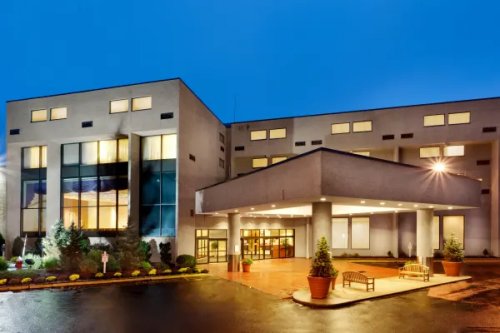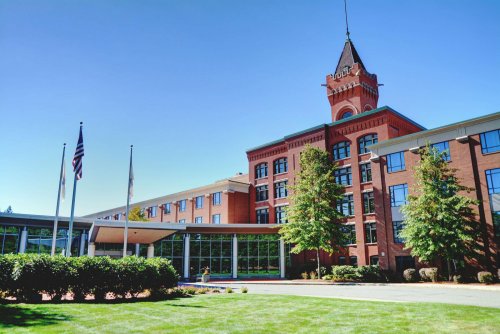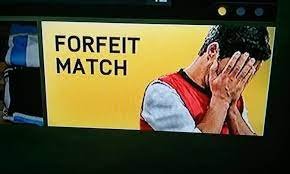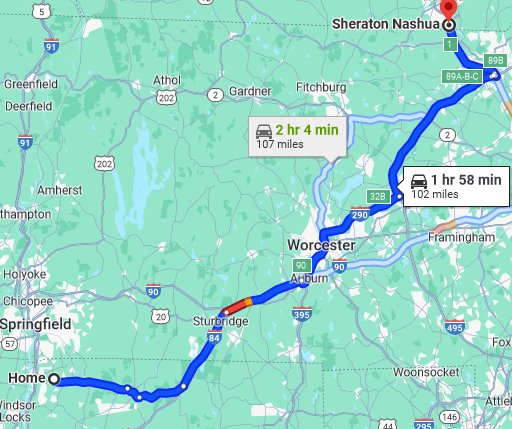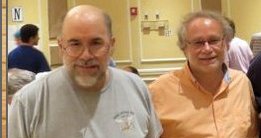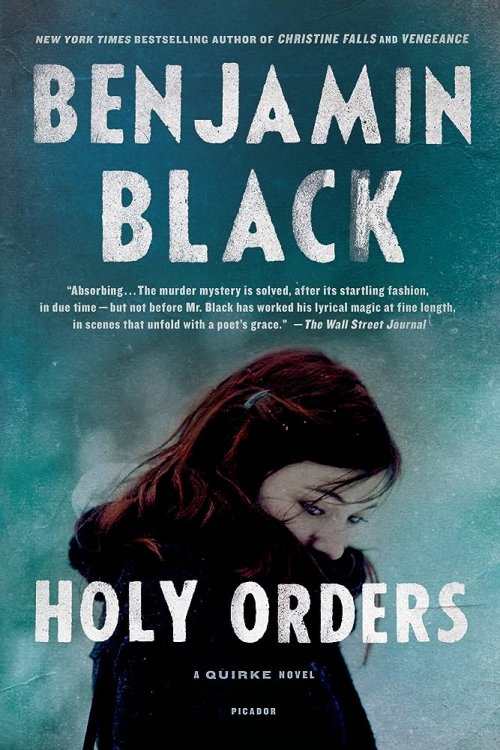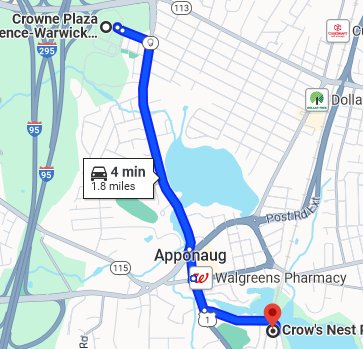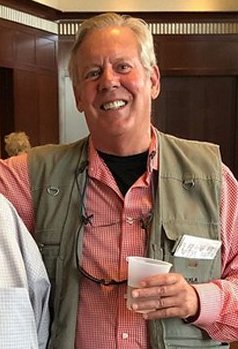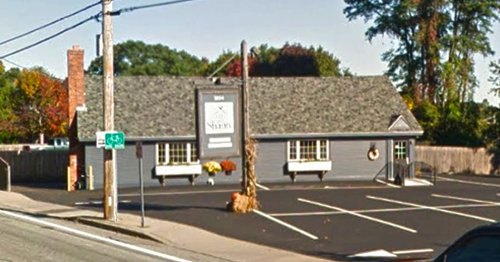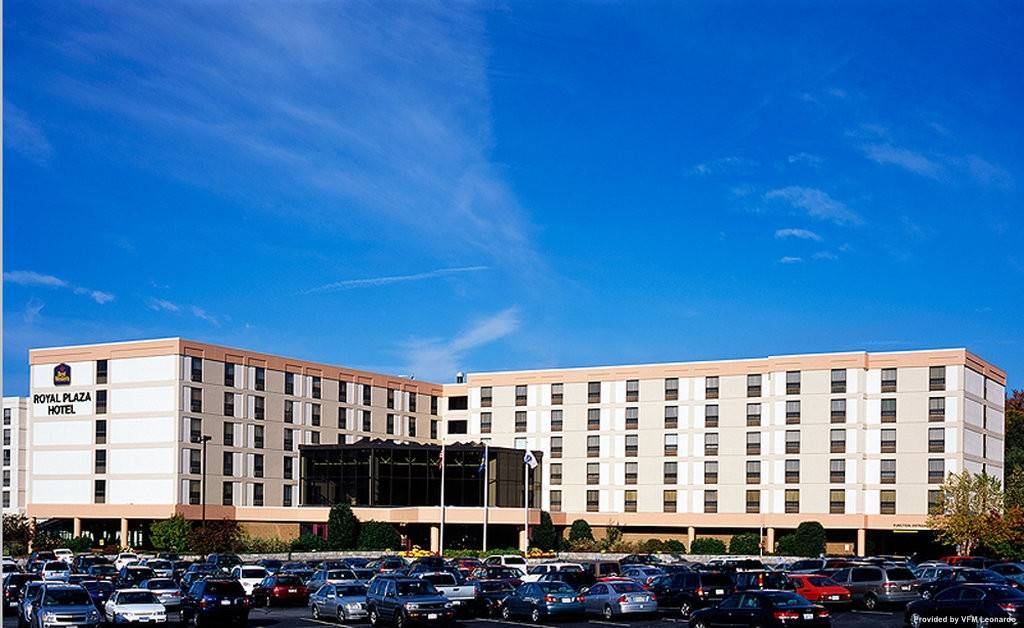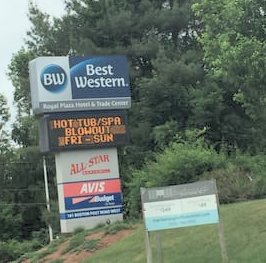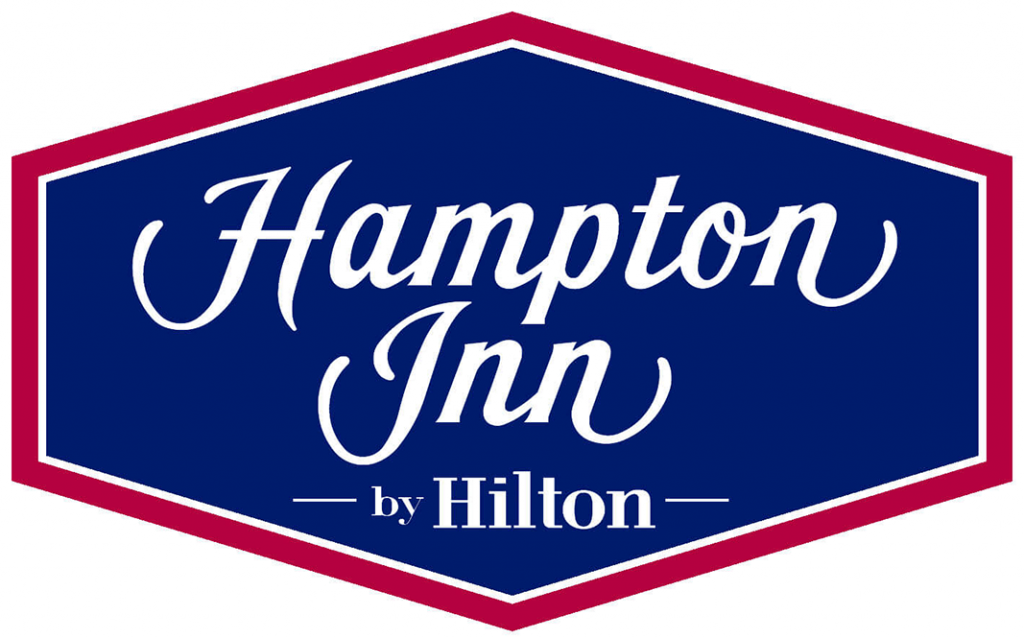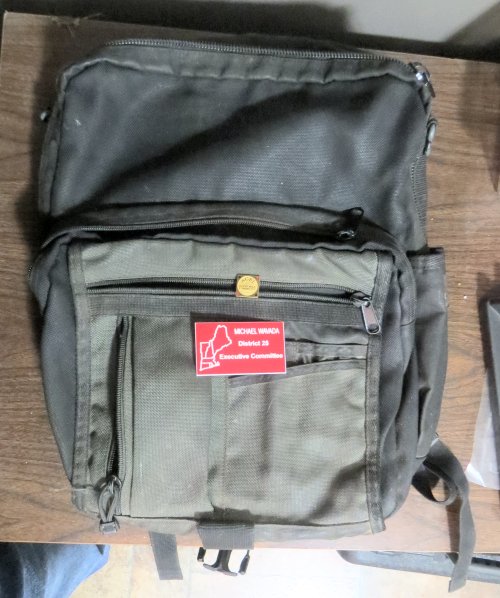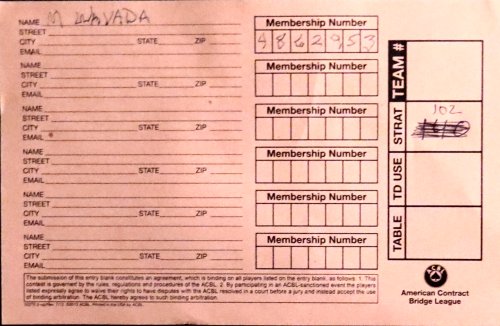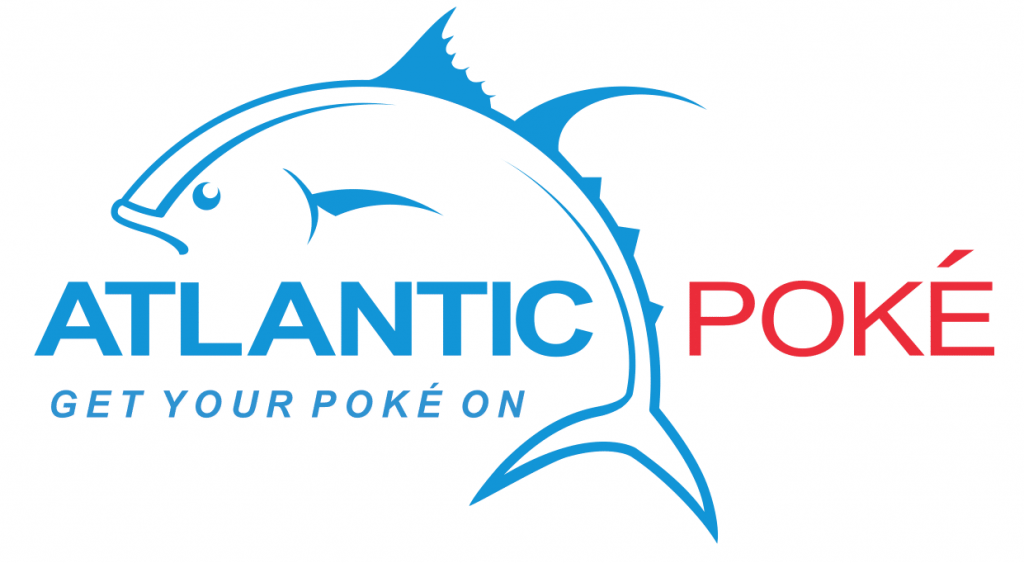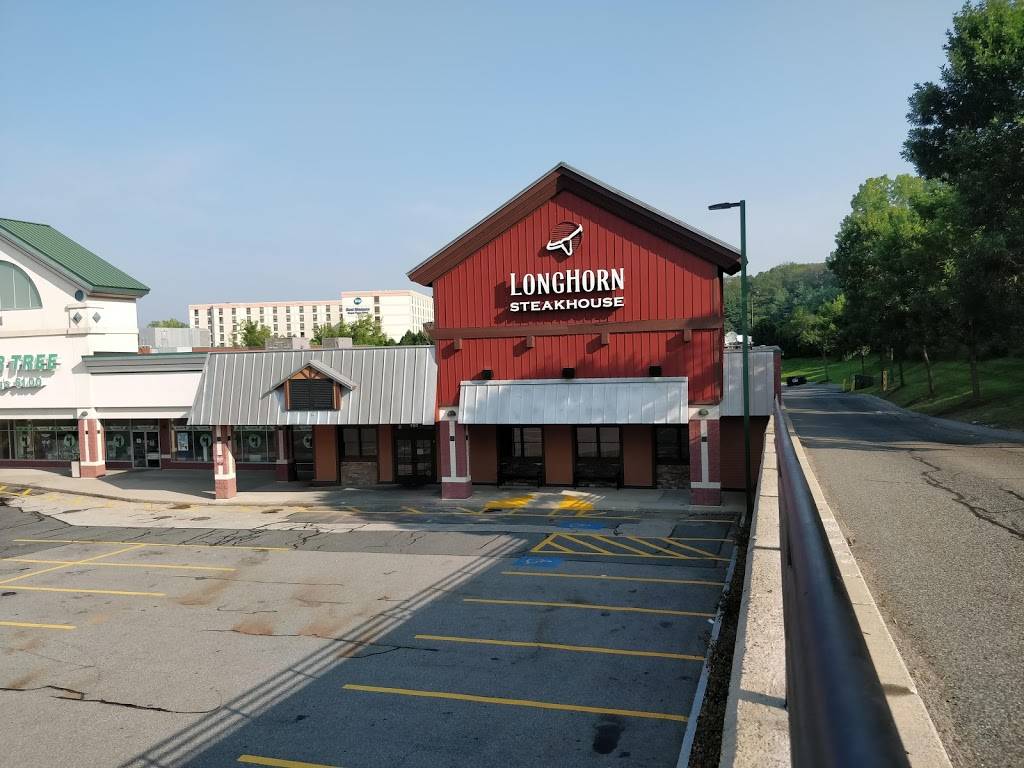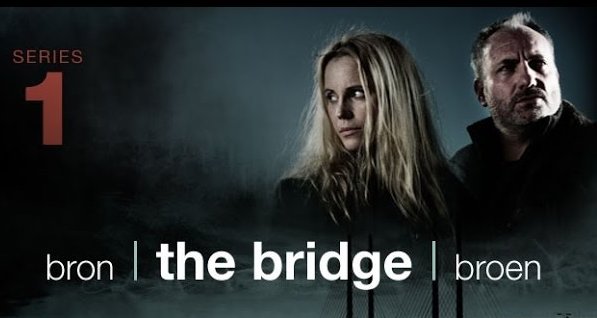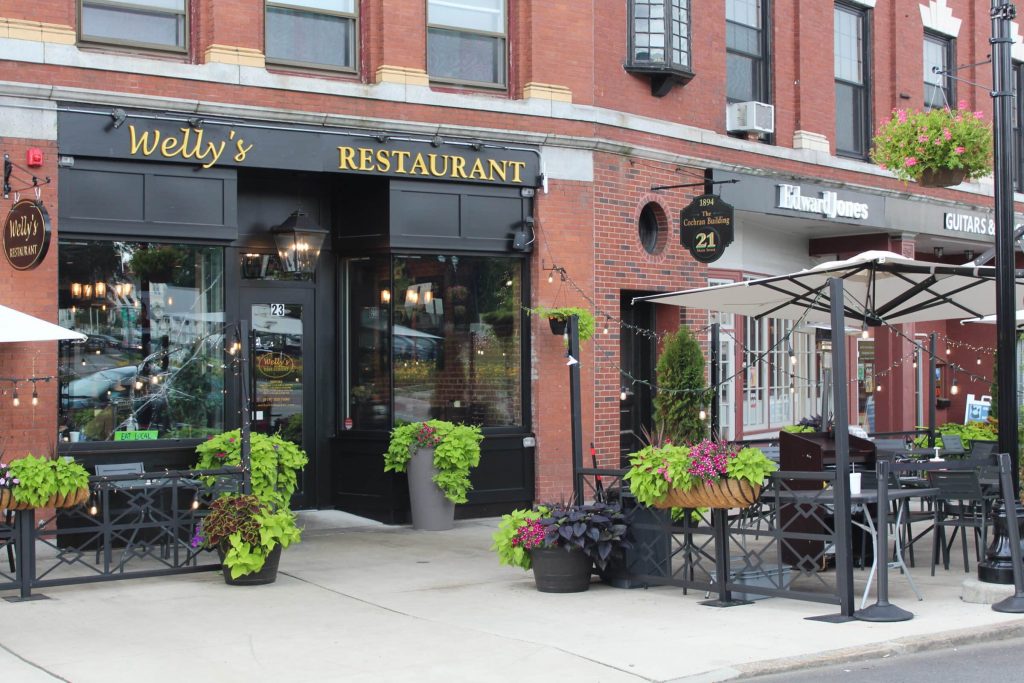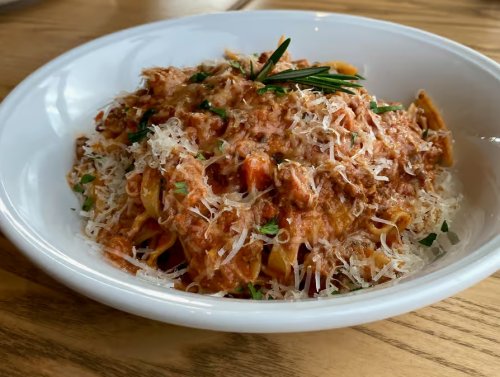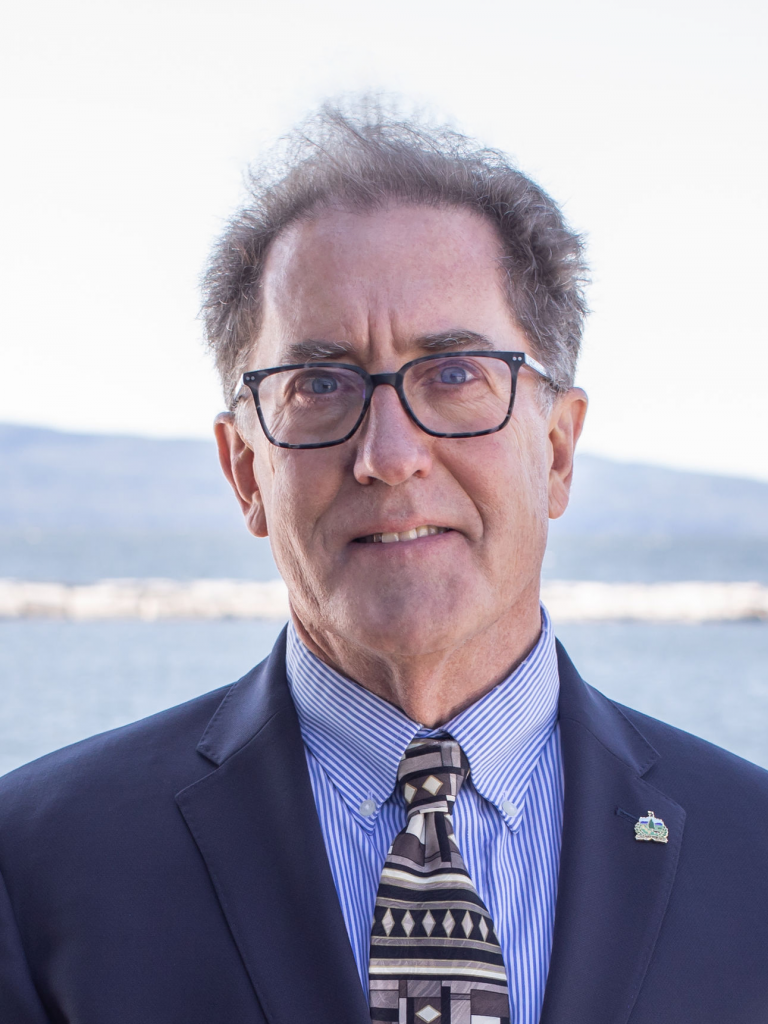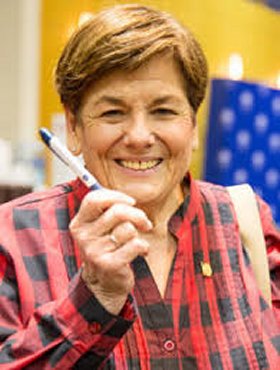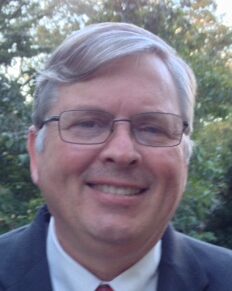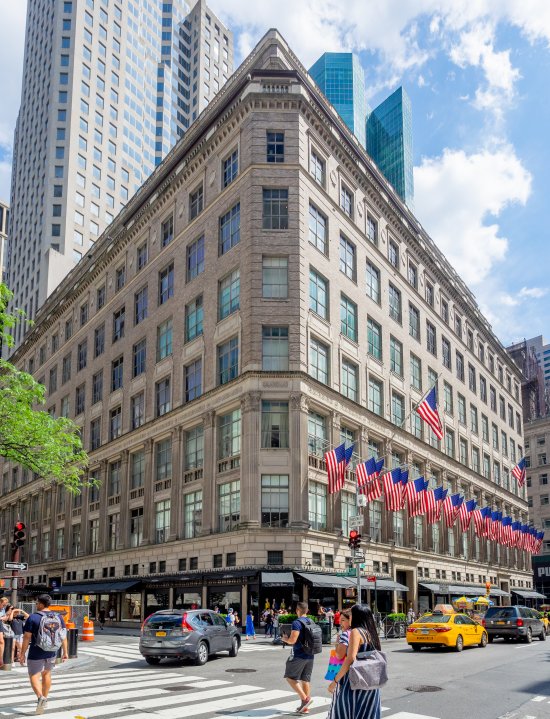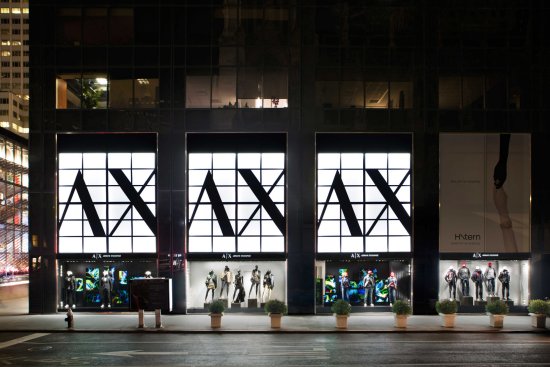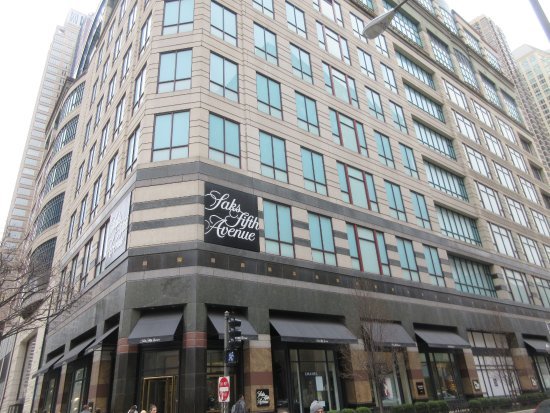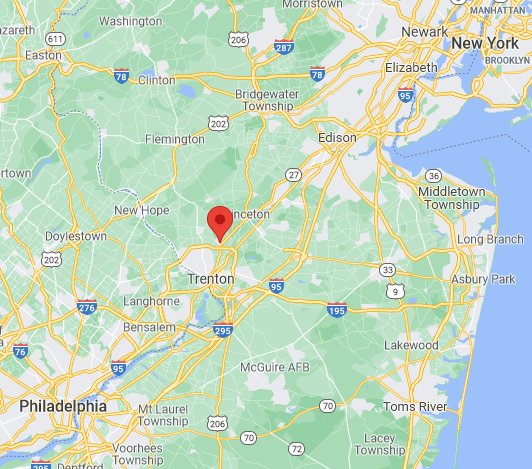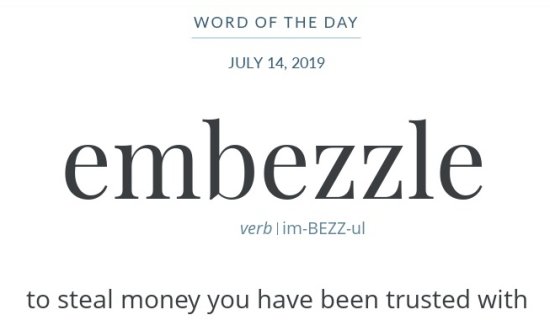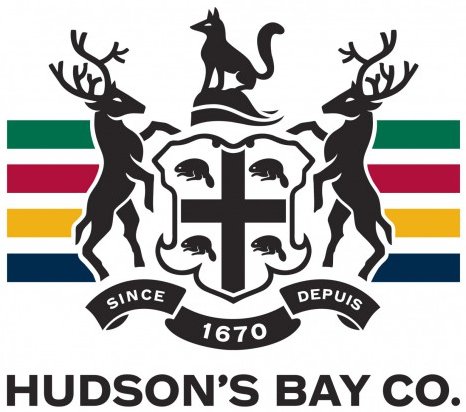Four Tournaments. Continue reading
Presidential Regional: District 25, the New England states, had traditionally held its first major1 regional tournament of the year in February. The site had been in Cromwell CT for as long as I had been playing. However, the demise of the Red Lion Hotel forced it to be moved to Sturbridge MA in 2020. The name of the last four or five events had been the Presidential Regional, because it ended on the weekend of Presidents Day. The name was maintained in 2023 even the the tournament was scheduled for February 7-11, the week before its usual appearance. The site was the Southbridge Hotel and Conference Center, which had also been used for the Spectacle Regional in the previous November, as described here. The 2023 Presidential was was scaled-down tournament of only five days designed to minimize the number of directors needed.
I was not excited about the schedule. There were no team games at all on Tuesday or Friday; if I played. I would be in the top flight. Wednesday featured a two-day knockout. Saturday had a three-flighted Swiss. I tried to get a partner from the pairing person, Denise Bahosh, but she could not find anyone for me. Eventually, one of my regular partners, Eric Vogel, agreed to play with me in the knockout. Our teammates were Jeanne Striefler and Jim Macomber from the Hartford Bridge Club.
I had played every day at every regional tournament for quite a few years. However, I decided not to play on Tuesday, Friday, or Saturday of this one. The drive to the hotel was not likely to be difficult as long as the weather cooperated. So, I decided to commute back and forth on Wednesday and Thursday. I also needed to be at the hotel for the meeting of the Executive Committee on Friday evening. I planned to drive then as well.
The weather was fine. On both days I stopped at McDonald’s in Stafford for my usual sausage biscuit with egg sandwich. Our team had just the right amount of points. We were the top-seeded team in the second bracket. Nine teams were in our bracket. We had to play an eight-round Round Robin, which we easily won. That gave us the right to choose which of the third and fourth teams we would play on Thursday. I chose to play the Sattinger team rather than the team from Vermont. Those two teams had finished with the same number of victory points, and we had defeated them both by the same margin. One of the pairs from Vermont played Precision3. I worried that if Jim and Jeanne faced them, they might have difficulty handling a radically different bidding system.
Our morning round of twenty-four hands was against Michael and Ulla Sattinger of Slingerlands, NY, a team that I have played against many times over the years. Eric and I were East-West. On the very first hand I made an overly aggressive bid that turned out to be costly. Eric also made a fairly serious mistake on a different hand. However, things must have gone better in the other room. At lunch we were ahead by twelve points, which was a reasonably comfortable margin.
Eric and I played better in the second half, but North-South held better cards on most of the hands. Ulla and Michael bid and made a few game contracts, but the hands seemed rather straightforward. I did not see any hands on which swings were likely. I was wrong. Jim and Jeanne did not bid several of those games and settled for setting their opponents in undoubled partial scores.
This was very upsetting to me. I had expected us to play as well as on the previous day. My record in knockout matches in the past was quite good, and I was convinced that things were lined up favorably for us. In retrospect I suspect that Jim and Jeanne might have gotten tired. Neither of them had played in any tournaments since the pandemic, and they had played in far fewer of them than I had before that. They were basically club players, and they had seldom played two sessions in one day, much less on two consecutive days.
After lunch we had to play against a team captained by Abhi (AH vee) Dutta, with whom I had played in a few tournaments. They had the second-best record in the Round Robin, but they had lost to the Vermonters in the semifinal. So, this match would determine who finished third. Eric and I were East-West against Abhi and Paul Johnson, a player from Connecticut with less than 750 masterpoints. Abhi had always been a deliberate player, and, at least in this match, Paul was at times unbearably slow—taking several minutes to make some decisions. At the half they were ahead by six points.
I told Jim and Jeanne that they would switch to East-West to face Abhi and Paul in the second set of twelve boards. Eric and I played against Liv Carroll and Louis DiOrio. Since they came from different corners of the district; they probably had been paired up by the Partnership Desk. We had a very pleasant match with them. Eric and I did not make any serious errors, but neither did they. It was hard to say if we had made up the deficit.
We had been waiting thirty minutes for the other match to finish when Eric announced that he had to leave to go to a meeting. This would ordinarily not have been a big deal, but it turned out that we won the second half by six points, and so our match ended in a tie. Jeanne tried to reach Eric by phone, but he was miles away and unwilling to return to play in a four-board playoff. So, we had to concede. It was the perfect ending to an awful day.
I drove back on Friday for the meeting of the Executive Committee. According to Curtis Barton, the President of the New England Bridge Conference, everything was “fabulous”. Attendance was better than at the 2022 tournaments, and some headway seemed to be being made, but it did not seem fabulous to me. The tournament was better than nothing, but it still seemed rinky-dink to me. To me the most amazing thing was how much money the district still had after a string of disastrous tournaments. The person most responsible was unquestionably Joe Brouillard, the treasurer.
The most hilarious moment occurred after Joe proposed eliminating the stipend to the secretary (Carolyn Weiser) and treasurer (himself) at tournaments. After some bizarre discussion there was a secret ballot. The motion failed 12-1. Everyone thought that Joe and Carolyn were worth every penny. The other important argument was that, heaven forbid, we were faced with replacing them, we needed to have every incentive available.
Granite State Getaway: I could not find partners for the six-day tournament in June in Nashua, NH. That was too bad; I would have liked to play in the knockouts; I even had teammates lined up for one of them.
Sue and I drove up on the morning of Saturday, June 24. The first half of the trip was in the rain, which was particularly heavy on the Mass Pike. By the time that we reached the hotel it was sunny.
I played with Sally Kirtley, the tournament manager, in the A/X pairs. We were badly overmatched. Sue also played in a pairs game and did not do very well.
At the Executive Committee meeting we learned that this was probably the last time that a District 25 regional will be held at the Sheraton. The hotel wants to increase the rate dramatically. Sally solicited and received a large number of suggestions for places with large spaces that were not directly associated with hotels. Joe emphasized that something needed to be done to strengthen the Grass Roots Fund. Before the pandemic most units specified one of their days as Grass Roots days. The district received funds from those games.
There was some discussion about doing the GNT qualifying in person, but I was the only person who felt strongly that it was a huge mistake to award gold points for online play.
No food was served at the meeting. Sue and I ate supper at Lui Lui. I had a delicious pizza and a beer. I questioned the waitress about on of the cartoonish paintings plainly captioned in Spanish, not Italian. She said that she knew nothing about it.
On Sunday morning at the meeting of the Board of Delegates we again heard about how fabulous things were. Only four people represented Connecticut—Peter Marcus, Paul Burnham, Sue, and me. At the end I took a couple of minutes to describe the Weiss-Bertoni award (introduced here) and to present it to Joe Bertoni. He was pretty choked up about receiving it, but, in my opinion, he definitely deserved it. I just hope that he continues the tradition of presenting it to other worthy recipients.
I scheduled an email to go out at 10AM to announce the winner.
The traffic on the return trip was awful. We arrived home more than a half hour later than we expected. It felt weird not to wonder whether the cats were all right.
If it were not for the presentation of the Weiss-Bertoni aware, I would have considered the trip a complete waste of time, gasoline, and money.
Ocean State Regional: For some reason that I do not understand the tournament in Warwick, RI, on the Labor Day weekend was scheduled for only five days beginning on Tuesday, August 29. Knockouts were scheduled for Tuesday-Wednesday and Thursday-Friday. I was fortunate to learn that Jim Osofsky’s regular partner, Mike Heider, would be in Germany with his sons that week. So, Jim agreed to play as my partner for both of the knockouts. He arranged for Abhi and Paul Johnson to be our teammates in the one starting on Thursday. In the first knockout Denise Bahosh, the Partnership Chairman arranged for us to team up with Mike Baker and Susan Swope, two players from Florida who had roughly the same number of masterpoints as Jim and I.
I had decided to play four days, attend the Executive Committee meeting on Friday evening, and skip Saturday. I was able to use my IHG Rewards points to pay for my three nights at the Crowne Plaza in Warwick.
Jim and Mike H. played Precision, but Jim played 2/1 in club games. He lived in Deerfield, MA, and Mike H. lived in southern CT. So, they only played together at tournaments. I had played against them innumerable times.Jim and I had exchanged emails about bidding issues, and we had come to pretty good agreement about the convention card. Still, there were a few issues to be ironed out. So we agreed to meet at the hotel at 9:00 on Tuesday morning.
Sue also wanted to attend the tournament, but, as usual, she did not get any partners until the last minute. On Monday evening she had arranged to play with her friend and long-time partner, Judy Cavagnaro in the Gold Rush pairs. Sue needed gold points to become a Life Master. When I went to bed she had not decided whether she would ride with me or take her own car. I planned to leave at 7:15.
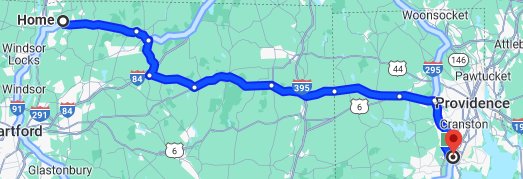
At 6:30 on Tuesday morning Sue informed me that we would ride together, but she wanted to take her car. Her plan was to provide for the possibility that she might want to come home early. When I asked how I was supposed to get home, she answered that she would drive to Warwick (a trip of at least an hour and forty-five minutes) to pick me up at 7PM on Friday after the meeting of the Executive Committee. I considered this to be ridiculous, but I was wise enough not to press that opinion.
At 7:03 Sue informed me that I should leave at 7:15 by myself. She would drive her own car. I decided not to stop at McDonald’s in Stafford. Instead I set as my destination on Google Maps the McDonald’s on Route 2 in Warwick. I picked up my sandwich there and arrived at the hotel at precisely 9AM.
Jim was already there, talking on his cellphone. His mother, who suffered from Alzheimer’s, was receiving memory care at a place very close to the Crowne Plaza. He was negotiating whether she needed a private nurse. I got a coffee and ate my breakfast.
At 9:30 we met our teammates, Mike and Susan. We had enough time to converse a little. Mike had a house in Rhode Island. Susan lived in Florida throughout the year.
For some reason the official schedule called the event in which we were playing the “Premier Knockout”. It was limited to players with 4,000 or less masterpoints4. Sixteen teams registered. The directors split it into two eight-team sections. Four of the eight teams in the top bracket had more total points than we did.
Jim and I played pretty well throughout the seven matches. We lost two close matches, including the last one to Abhi’s team, but our total of 91 victory points was much higher than that of any other team.
As in February I was allowed to choose our opponent in the semifinal on Wednesday from the third and fourth teams. This whole scene was eerily similar to what had occurred in Southbridge. On this occasion, however, we had blitzed the fourth-place team Mullin), and the other team included an extremely talented young player named Ethan Wood. It seemed like an easy call to pick Mullin.
Meanwhile Judy and Sue had done very well in the Gold Rush Pairs. They finished fourth out of thirty-six pairs and won 2.32 gold and 0.65 red masterpoints. Sue decided to accept the invitation from Sally Kirtley to play in the evening side game. Apparently she was having a great time and did not want it to end. Also, she seldom turned down an invitation to anything.
I drove to KFC and picked up an eight-piece family meal. I ordered a large Diet Coke as well, but for some reason the person who took the order and got everything else right, did not include the drink. I had to pay $3.50 for a 10-oz. bottle at the hotel. We were also annoyed to discover that they had neglected to include any napkins or sporks. In my suitcase I discovered some napkins and silverware from a previous trip. Sue ate a chicken wing before the side game started.
While she was gone I ate supper and watched the ninth (penultimate) episode of the first season of Sneaky Pete on Freevee. I loved the show, but the plot was so complicated. I was dying of curiosity to find out the resolution in episode 10, but watching it on the hotel’s free Wi-Fi was almost intolerable. It kept timing out, and I needed to restart it.
After taking a shower I read a chapter of Holy Orders, the sixth of the quasi-mysteries written by Benjamin Black. Black’s style5 is exceptionally good. The plots are intricate, but they do not follow any of the traditional forms for crime fiction. The central character, an Irish pathologist named Quirke does not solve the mysteries. His friend, a police detective who is more Inspector Plodder than Sherlock Holmes, explains the situation at the end.
I went to sleep early. Although I was wearing my eye-mask and earplugs, I was still awakened when Sue returned to the room. I managed to get back to sleep, however, and I was well-rested in the morning.
We went to the Jefferson Diner for breakfast. I had a ham and Swiss omelette. It was good, and the home fries were better than they looked.
The Mullin team consisted of a pair of ladies, Susan Mullin and Sheila Middleton, and two men, Steven Colman and Mark Sunderlin. Although Sheila, Steven, and Mark were all from Massachusetts, neither Jim nor I had previously played against any of them. They had the most points of any team. So, they must have been playing for a very long time in club games. We were not impressed by the ladies’ performance in the match in the previous day’s event. The two men were apparently long-time partners. They both lived on Cape Cod.
They opted to switch their chairs so that Jim and I played against the men. They announced that they were playing Precision. I had invented a defense against strong club systems. I called it WavaDONT. I had to explain it first to Jim and then to the opponents:
- Overcalls of the 1♣ bid at the one and three-levels were natural—showing five and seven pieces respectively.
- With a six-piece suit bid 1NT, which is a relay to 2♣ to be passed or corrected.
- With a two-suited overcall bid the lower suit as in DONT.
- With a very strong hand double.
Our opponents called the director, Tim Hill, to ask whether it was legal for us to use such a complicated (?) defense against their system in a game at “this level”. Tim said that he was “99.9 percent certain” that we could use whatever defense that we wanted. It turned out to be immaterial. In twenty-four hands they never opened 1♣!
The two guys seemed much better than the ladies. In the first half there were two consecutive swing hands. On the first one our teammates made 3NT. Our opponents went down in 4♠. In the other I went down in 3♠. At the other table our teammates did not defend well and let them make 4♠. In total we had a flimsy lead of one imp.
I thought that we had won the second half easily. One of our opponents had revoked on a vulnerable hand that he might have made or gone down one. However, in the first six hands we found ourselves down by six imps. It was a great relief when we won the last six by eleven. So, we won the match by six imps.
In the finals we played Ethan Wood’s team. His partner was not very good, and we easily won both halves. So, we won the premier Premier Knockout and 20.13 gold points. The Mullin team won third place over a team of guys from Maine.
Jim, Sue, and I decided to eat at the Crow’s Nest, a seafood place that was only a few minutes south of the hotel. Sue and Jim, both from New England, consumed some kind of water-dwelling insects. I tried “The Burger”. which was described in the menu as “1⁄2 lb of all-natural free-range beef topped with cheddar, lettuce, pickles, secret sauce, brioche bun, fries.” The secret sauce tasted a lot like the sauce on a Big Mac, which must have been the intent. The problem was that there was so much slippery stuff that the meat kept falling out the bottom of the buns, and when I did get a taste of meat, it was overwhelmed by the other ingredients.
All in all, we had a good time. After winning a knockout I probably would have had a good time if they served me dog food, and I got ptomaine poisoning.
The drive back to Route 1 featured a body of water on the right. We did not even notice it on the way there, but on the return trip the road was pretty severely flooded. The discussion in the car concerned what has the biggest effect on tides. I was even asked my opinion. As a native of Kansas I had none.
On Thursday morning I ate a piece of leftover chicken, and Sue consumed one of her spherical “crab cakes” for breakfast. I consumed one of the coffee pods in the Keurig and secreted one in my suitcase in hope that the cleaning person (who only came on Tuesday and Thursday)6 might refill the empty slots in the pod holder.
Sue had obtained a partner for Thursday’s Gold Rush Pairs game at the partnership desk. His name was Steve Lister. I found a photo of him that was taken at the 2019 event in Warwick when he won a couple if 299er pairs games.
I was not too sanguine about our chances in the Thursday-Friday Knockout, which had the same format as the one that we won. Our team had about 3,000 less points than our victorious foursome. Nevertheless, we were the fifth-seeded team in bracket #1 again. This time there were only seven teams per bracket. We therefore played six rounds of eight boards.
We did not do very well. We barely avoided last place. We got clobbered in the last two rounds by the team that won the event and the team that was in last place. I was slightly upset about the last result. Our teammates missed bidding two slams. On one they settled for a game and made seven. On the other they let the other team play in hearts.
The first of those hands was a comedy of errors at our table. The North-South team was Ulla and Michael. Ulla opened 1[suite x=’H’]. Michael bid 2NT to show a game-going hand with four pieces. Ulla rebid 3♠, which was supposed to show a singleton or void in spades—she actually had a doubleton. Michael cued the club suit; Ulla cued diamonds; Michael bid 4NT, asking for key cards. Ulla showed two of the five key cards (four aces and the king of trumps) without the queen. Michael bid 7♥ even though he knew—or at least should have known—that they were off a key card. If it was an ace, as certainly was likely, the contract was impossible. If it was a 50% play. In short, it was a terrible bid.
Ulla could not believe that he went to seven with only two key cards, but the one that they were missing was the Jim’s king of trumps, which could easily be finessed. So they made it. This was the first hand of the match. I knew that we were doomed. My play during the next five hands was uninspired.
So, on Friday we had to play in the Open Swiss or a pairs game. We decided to play in the Swiss.
Sue and I went out to eat with three people from the Northampton, MA, Yan Drabek, Rich McClure, and Allison Ryan. I really needed to get away from Jim O. for a while. He talks during every break between the hands, and I grew tired of listening to him. I was also down on Abhi and Paul after the last two rounds.
Our destination for supper was the Shanty, a small restaurant on Route 1 not very far south of the Crow’s Nest. It was another seafood place. We had two appetizers, yam fries and sweet soy chicken wings. The service was slow and Yan was very hungry. Everyone else liked them a lot. I thought that they were OK, but I would have preferred the wings without the sauce.
I ordered the baby back ribs, which were described as “honey glazed ribs, patatas bravas, corn, sriracha mayo, Parmesan, cilantro.” The last four were all mixed together and also covered with the glaze. I must say that this was the first time that I have ever been disappointed with the way that a restaurant prepared baby back ribs. I ate all the meat, but I barely touched the other stuff. I also had a beer.
The conversation, however, was great. I really perked up when Rich first asked about how to defend against Precision and then how to bid when the opponents play a Weak 1NT system. Everyone also laughed at my impression of Jim explaining things. He was a nice guy and a good player, but he just talked and talked. Yan, Allison, and Rich know him well; they all play in the Northampton Bridge Club.
The most amazing thing about this meal was that the other three participants seemed to have no idea how to split a check. I had to step in and do the arithmetic for them.
I went to sleep shortly after we arrived back at the hotel. I awakened at 3:30, and I never did get back to sleep. I finished up the chicken for breakfast. The rest of the day I stayed awake by imbibing caffeine.
Sue decided that she would not play on Friday. Steve L. was required to be home to celebrate his birthday. If he had been willing to play, she probably would have stayed. Her plan was to use the pool after all of the bridge players were busy playing and then check out of the hotel.
I woke up at 3:30 and never got back to sleep. This happened to me on a fairly regular basis. By the time of the first round I had been up for 6.5 hours. I had consumed plenty of caffeine in the interim, but I was still groggy in the first round. I failed to recognize a splinter and identified it as a weak bid. This resulted in a big swing that cost us the first match. I righted the ship after that shocking mistake.
We bumped around in the middle for most of the day, but we had a couple of big wins. We lost the last match on a hand on which I opened 1NT with a flat 15 and everyone passed. I went down one. Somehow our teammates lost 200 points even though neither side was vulnerable. I did not even ask how they did it.
I rushed off to the Executive Committee meeting with out checking our results. It turned out that we had 84 victory points, which was good enough for fourth in B and 2.66 gold points.
Hardly anyone was there when the Executive Committee meeting was schedule to begin. Someone decided that we should have food again, but we had to order from the sandwich menu. My Reuben sandwich was on the counter with a silver cover that bore my name on a tag. The French fries were surprisingly good. but the sandwich was cold. The sodas were brought in halfway through the meeting.
Curtis Barton, the president, called the meeting to order and, as usual, announce how fabulous everything was. He mentioned the fact that Mark Oettinger had resigned as vice-president, and he had appointed Sue Miguel as temporary vice-president.
Mark Aquino, the Regional Director, said that Bridge Base Online (BBO) was sold to a French company with no concern for the state of bridge. They were only interested in money. The ACBL’s contract runs out in 2025.
The table rate for youth players was set, as was a new rate for online NAP and GNT games. This was done to help boost the balance in the Grass Roots Fund.
I suggested that the Tournament Scheduling Committee should consider offering the Pro-Am game in the evening. After some cajoling I volunteered to manage it for the tournament scheduled for Southbridge in February of 20247.
I took a can of Diet Coke and consumed it on the drive home. I arrived at exactly 9 PM, and the miles-per-gallon read 40.1, but I have long suspected that it overstates the car’s actual mileage by about 5 percent.
The last tournament of the year, which was called “The Return of the Gala“, was held in Marlborough8, MA, from October 31 through November 5. The original Gala was held at the same site in May of 2022. I missed it because I was on the European cruise that was described here.
I planned on playing for five of the six days, but I had a very difficult time finding partners and teammates. I was fortunate that Eric Vogel agreed to play as my partner in the two knockouts held the first four days, but he could not play on Saturday. More than a month before the tournament started I submitted electronic forms to the partnership person, Denise Bahosh, for teammates for the knockouts and for a partner for Saturday. I had to pretend that I wanted to play in the open pairs on Saturday. If I could find a partner, I would try to convince him/her to switch to the Swiss.
Sue Miguel had sent an email in early September that claimed that the hotel, a Best Western (BW) property called the Royal Plaza Hotel and Trade Center, was only recognizing the tournament rate until the end of September.9 So, I made reservations for one double room for four days.I planned to drive home after the Executive Committee meeting on Saturday evening. I had forgotten that there would be a meeting of the Board of Delegates on Sunday, and I was unaware that the Executive Committee meeting had been scheduled for Friday.
Denise tried to match Eric and me up with Alan Godes (introduced here) and an unknown teammate. I was somewhat reluctant to commit us to join up with them, but it turned out not to matter. Alan did not respond to my email for some time. In the interim Denise proposed that we play with Carol Seager and Michelle Blanchard (introduced here) in the first KO. I had played with them before and had a reasonably good experience. So, I agreed to teaming up, and so did they.
Meanwhile Alan wrote me to say that he had teammates for the Thursday-Friday KO, but he needed to find someone for the first one. I explained that we had just found teammates for that event. I don’t think that Alan ever found teammates.
Just before the tournament Denise informed me that she could not find a partner for me for Saturday. So, on the eve of the tournament I had big gaps in my dance card.
Sue could not find partners either. She wanted to attend the Board of Delegates meeting on Sunday, but it did not make much sense for her to drive up just to attend. It would be about a seventy-five-minute drive even on a Sunday morning.
On the morning of Tuesday, October 31, I set off in my Honda for Marlborough by myself. The drive was relatively easy. The only problem was that the first leg of the journey was due west on Route 190. In a few places the sun was directly in my eyes. I had my sunglasses on, but even so it was blinding. Still, even though I made my customary stop at McDonald’s in West Stafford, I made excellent time. I arrived at about 8:45, much earlier than I expected.
The only difficult part of the drive was finding the hotel. On I-495 the exit for the hotel was labeled Route 20 west. The street’s local name was Boston Post Road.
The hotel was located on a road that went north from the Post Road called “Royal Plaza Drive”, which was really more like a driveway. There was no street sign that I could see. Later I noticed a large “Best Western” sign, but on my first pass I was searching for a street sign, not a sign with five or six logos on it. Because the Post Road had a median I had to continue to the next stoplight and then make two U-turns to return to the spot where Google Maps had told me to turn.
I definitely did notice the sign for the Hampton Inn, which was located right on the Post Road. I definitely took mental not of the fact that the Hampton and a lot of other more modern hotels were quite close to the BW.
The road to the hotel had one striking feature—an oversized speed bump that was quite jarring if taken at more than 5 mph. The hotel’s parking lot was gigantic. It was mostly empty when I arrived, but at night a large number of big trucks parked there. I don’t know whether the hotel charged them for this privilege.
I parked on the right near the door to the exhibition center. Many of the people who were already there had on costumes. Gary Peterson (introduced here) had by far the most elaborate one. He was dressed as the King of Hearts, complete with crown and mace. One woman wore a long bathrobe; I think that she intended to be a geisha. I thought that all of the costumes seemed creepy. I had on my black trousers and shirt and my Halloween tie. The neck on my shirt must have shrunk. It had become too small for me. I was uncomfortable all day.
Sally Kirtley was wearing some kind of semi-costume, but what caught my attention was the fact that she had on her Tournament Manager badge. That reminded me that I had accidentally left my Goodwill pin and Executive Committee name tag at home. I remembered getting them out of my backpack. What I did not remember was that I had also put them back in the pack. Later I decided that I did not need to bring the pack.
When I arrived the playing area was very cold. For the first half hour or forty-five minutes there was no coffee. I sat by myself and shivered even though I was wearing the jacket that I had bought (and almost never needed) for my European cruise eighteen months earlier. A few people dropped by to say hello to me.
At about 9:30 I located Carol and Michelle. I expected Eric to be there at any minute. He was still missing ten minutes later, and, in fact, there were very few people around the table where they sold entries for the two knockout events. Carol gave me her credit card, and I used mine for Eric and me when I bought the entry. Our preliminary number was 102, which meant that only one other entry had been sold.
I had my phone in my hand to call Eric at about 9:50, but I saw him before I could find his name in the contacts. He reported that he had arrived early, and the hotel let him check in. So, this was my first clue that our group constituted the vast majority of the hotel’s guests.
I asked the director, David Metcalf, how many entries they had sold. He replied that four teams were in the top bracket and four in the 0-4,000. Carol insisted that we drop out and play in the pairs, and I agreed. Two of the original four teams played in the open KO and were given handicaps.
Eric and I won some points in both sessions of the open pairs, but we did not set the world on fire. There were about twenty-two tables in each session. None of the hands stood out for me.
I am not sure why so few people chose to play in the knockouts.
The lunch break was more than an hour. After I ate my roast beef sandwich and chips, I checked in and went to the room that I had been assigned, #263. I discovered when I opened my shaving kit that I had forgotten my toothbrush. I used one end of a Q-tip to paint my teeth with toothpaste. I also used a proxabrush and floss.
I sent an email to Eli Jolley, who had filled out a card looking for teammates for the Thursday-Friday KO. He had 3,000 masterpoints, and his partner had 2,000. A few minutes later he replied that he would like to team up. I said that I would be around the partnership desk at 9:30 on Thursday morning, and many people would know me.
In the second session we played two hands against a couple who played the Polish Club, which has a three-way 1♣, Kris and Dorota Jarosz. I decided that we would play the defense that I had devised against what I called faux club systems. It involved using a 1♦ bid to make a two-suited overcall. We did well against them.
Sue Miguel kept interrupting the bridge to give awards for costumes. There were also gift cards given as door prizes. She must have used the word “fabulous” ten times. I was ready to puke.
Eric and I got points in both lackluster sessions. If I had had my druthers, I would have just driven home after we found out that there would be no KO.
When I got back to the room after the second session I phoned my wife Sue at home to tell her about the fiasco in the KO.
On Tuesday evening Eric, who is a vegetarian who sometimes eats fish, and I went out for supper. He wanted to try a place called Atlantic Poké. He tried to figure out how to get there from a map that was available near the welcome desk. We finally found it, but it was just a small place that seemed to specialize in takeout. The accent on the “e” made me think that it was probably sushi, the one thing that I have always refused to eat.
So, Eric said that the Longhorn Steakhouse was acceptable. I dialed it up on Google Maps, and we found it rather quickly in the corner of a strip mall. Eric had salmon, and I ate the baby back ribs. We talked about our careers. I learned that after Eric had been laid off from Pratt & Whitney he went to CPI and learned to program. He spent the rest of his career in IT at insurance companies.
I also learned that Eric had done quite a bit of work on Y2K. The part that he did sounded ugly indeed. He also mentioned that it was impossible to get Fortran programs converted to COBOL because they had different rounding mechanisms. He probably would have liked working at TSI, and I would have liked to have him.
I tried to watch an episode of The Bridge on my laptop, but I couldn’t get interested in it. I also tried to read from the book that I had picked up at the Hartford Bridge Club, Mexico Days by Robert Roper, but the light in the room was so dim that I gave up after about one page.
When I went to get into the shower the tub had water in it. I slipped and fell on my back on the floor of the bathroom. I was not seriously injured but I smashed my right hand against the baseboard. I put bacitracin on the small cut after the bleeding stopped. By the way, there was a handle outside of the tub, and I did grasp it as I entered the tub. Nevertheless, I could not stop the fall.
To get the water out of the tub I needed to shove a plastic Bic razor that I always brought for emergencies between the stopper and the lip of the drain.
I did not think much of my room. However, it did have a refrigerator into which I placed the two bottles of water that the desk clerk gave me when I checked in. There was also a microwave, but I did not use it. The bed was quite comfortable, and the heat worked without a problem.
Breakfast was free. I met Eric in the restaurant (which only served supper on Fridays and Saturdays) at 8:15 on Wednesday morning. They served pretty much the same thing every morning: scrambled eggs (plain and with something added), meat (sausage or bacon), French toast sticks with syrup, fruit, and yogurt. Juice and coffee were available from extremely old machines. The sausage that they served on Wednesday and Friday was much better than Thursday’s overcooked bacon. The French toast was much too chewy.
Afterwards we played with Michelle and Carol in the open Swiss. There were only twelve teams. In the first round I played 3NT two hands in a row. The first one was routine. On the second one I had eight tricks. There was also some potential for more in some suits. The problem was spades, where the dummy had only a doubleton, and I held Kx. Sure enough, the lead was a low spade. I played a card from dummy. Then the player on my right pulled two cards from her hand, the queen and ten of spades, and dropped them on the table. We called the director.
Tim Hill came to the table and explained that she could play either card. The other would be a “major penalty card”. She chose to play the queen. I scored my king. Now I only needed one trick. I crossed to the dummy in hearts and took a finesse in clubs. It lost, but I was allowed to tell the left-hand opponent not to lead a spade. In the end I was able to win ten tricks before they got their spades. If she had dropped the cards on the table, I could never have made it.
When we returned to our teammates’ table, I said that unfortunately we had probably used up all of our luck for the day in the first round. They thought that they had done badly, and they had, but the gain from my lucky 3NT game was enough for us to claim victory.
The celebration was short. We played against Mark Aquino’s team in the second round and got blitzed. That was the first of four consecutive blitzes that we endured. This was even worse than the performance in the Swiss at the NABC in Boston (described here).
I played none of the thirty-two hands in the four blitz rounds. One hand in the middle of the blitzkrieg deserved emphasis. I held KQJ10 and three little clubs, a singleton diamond, Ax in hearts and Kxx in spades. Eric opened 1♣! I wasted no time and bid 4♦, which asked him how many aces he had. His answer indicated all three! I thought for only a few seconds before bidding 6♣.
Eric had to play it. I could tell from the look on his face that it was going to be difficult, and it was. He won only my seven clubs, the three outside aces, and the ♠K. At the time I thought that it was due to an unlucky lay of the cards, but I should have known better.
Eric’s opening bid indicated that he had either three clubs or more clubs than diamonds. In any case he had four or fewer hearts and spades. Unless he had precisely one diamond and four in the other suits, he had less than 15 points. If he had had 15-17 points with a balanced hand, he would have bid 1NT. So, he was very unlikely to have either of the missing kings. I was essentially gambling that he had the ♠Q! It was possible, but not very likely.
I should have just responded 2♣ to set the trump suit. We would then bid stoppers up the line. When I was certain of stoppers in every suit, I should have signed off in thee lowest available notrump bid.
In the sixth and last round we played against Alan Godes’s team. The match ended in a tie. Somehow it seemed fitting.
At that point I considered it to have been an unspeakably bad tournament. It got a little better at supper, which we ate with Ben and Ginny Bishop. At the time Ben was the president of the HBC. One of Ben’s sons had recommended a restaurant called Welly’s in the neighboring town of Hudson.
For some reason we took two cars. Ben knew where it was. I was confident that I had programmed Google Maps to report the directions to Welly’s Restaurant in Hudson (there was also a Welly’s in Marlborough).
Somehow I got the directions for Willy’s Steakhouse in Shrewsbury, MA. So I turned a fifteen-minute trip into one that took much more than half an hour. Ben and Ginny had to wait for us.
I don’t think that I spoiled the evening. I had a Reuben sandwich, which was pretty good. The stars of the meal from my perspective, however, were the tall glass of Guinness and the onion rings. The latter were both delicious and plentiful.
We got to learn a little about Ginny’s career in nursing. The rest of the evening was spent with Ben, Eric, and I swapping war stories about working with computers. They were both pretty impressed to learn that I had personally installed thirty-six AdDept systems.
Ben also told us about his two sons. They both had worked for the MITRE Corporation. I had never heard of a non-profit that worked with the federal government.
We found our way back to the hotel without any problem.
On Thursday morning I learned that Eli was a relatively young pro from Auburn, AL. I already knew his partner, Judy McNutt from western Massachusetts. She was wheelchair-bound.
This time there were two brackets of eight teams in the 0-4,000 KO. We were the top-seeded team in the upper bracket. We won our first three matches rather easily. I decided to spend the break in my room resting and dining on the gifts that the lady at the front desk gave me when I checked in—a bag of chips, an energy bar, and water in a bottle. When I returned to the playing area I bought a can of Diet Coke.
Our streak continued after lunch We won the first two matches. At this point we had pretty much clinched a spot in the knockout on Friday. However, we were blitzed in the sixth round, which allowed the team that beat us to pull even with us. Both teams won blitzes in the last round. We were awarded first place based on the fractional victory point score that was in effect.
Eli asked me if I cared about whom we played. I told him that it was a difficult choice. The two teams, Page and Clay, were only one victory point apart, and we had defeated both of them in the Swiss by small margins. I picked to play the Page team because the other team seemed to me to have a stronger East-West pair. I hoped to protect Judy, who was definitely our weak link.
Eric and I ate supper with Donna Feir, the manager of the HBC, and Sally Kirtley. At my suggestion we went to Evviva, a casual Italian restaurant. Two HBC players, Tom Gerchman and Dan Finn were already seated nearby. They were going over the hands from the pairs game. I ordered the Bolognese (at Evviva they put the bowl in Bolognese) and a glass of Montepulciano.
The conversation at supper was not extremely memorable, but I enjoyed it. It was the first time in my fifteen years as a member of the HBC that I had been in a social situation with Donna. I did learn that the tournament in February would be the combination sectional and regional, and it would be held in Mansfield. The Presidential Regional had been assassinated. The tournament in Southbridge would be in April.
After we drove back to the hotel Donna and Sally played in the side game. I went to my room and watched part of the football game between TCU and Texas Tech. Texas Tech was ahead 20-7 when I turned it off at the half, and the Red Raiders held on for the victory.
I got the bright idea of dragging the pole lamp over to the side of the bed. I cocked the shade so that it produced enough light to read by. I read a chapter or so before I took a shower and then went to bed.
At 3:00 I awakened and spent an hour and spent about an hour working out the combinatorial probabilities of that slam hand that failed. I only went to sleep when I realized that it was almost impossible for Eric to have either missing king.
I wore an N95 mask the first three days. Less than 10 percent of the other players did so. However, the rigidity of the mask bothered the bridge of my nose, and I had deep gouges in the side of my face. Since I would only be at the same table as four others, I decided to leave it in room 263.
After breakfast on Friday I went over to the table occupied by Steve Ackerman and Sue Collinson from Vermont. I asked them if they knew what the backstory was for Mark Oettinger’s sudden and—to me, at least—shocking resignation. Steve said that Peter Marcus had called Mark and insisted that he should resign. Steve said that it was “pretty nasty”. Later that morning I met up with Joe Brouillard. I asked him if he knew what had happened. He said that he had been surprised by it and knew no details.
I thought back to an email that I had received from Sandy DeMartino asking me about Mark’s performance. I explained that he seemed OK to me, but my interaction with him had been limited by the fact that I was unable to attend three consecutive meetings of the Tournament Scheduling Committee, at which the strategy for recovery from the Pandemic was decided. I had then resigned from the committee because I was spending so much time on the HBC, the CBA, and this project.
Sandy said that Peter Marcus had telephoned her and asked her to support Sue Miguel as the next president of D25. Sandy declined to do so. I think that this must have been before the call to Mark.
I found all of this to be deeply disconcerting. At the close of my conversation with Steve and Sue I asked them if they thought that I should make a stink about this at the Executive Committee meeting on Friday evening. Steve advised against it. Sue was silent.
We lost the match against the Page team. All of the swings in the first set were in the first six boards that Eric and I played. I did not think that we had played badly. We won the second set by eight, but that was not nearly enough.
I bought a salad, which was barely edible, and a Diet Coke for lunch. I ate by myself and had a hard time keeping the Oettinger affair out of my head.
I checked the cards on the partnership desk. I could scarcely believe that no one was looking for partners for Saturday’s open pairs game. I don’t know what I would have done if I had not canceled my hotel reservation.
The first set of the consolation game after lunch was easy to analyze. We did not bid three games that our opponents did. Two of those were my decisions. The games came home because on both hands Eric and I had a secondary fit in the diamond suit that, because of aggressive interference by the opponents, neither of us got a chance to show the other.
Wee came back strong again in the second set. However, we lost ten imps because Eric opened a flat hand with a 12-count, something that I would never do. I had nineteen points. I responded 2NT, which for us showed 12-14 or 18-19 points. Eric bid 3NT, which indicated that he had no short suits. I bid 3NT, which went down. If Eric had had the thirteen points that I expected, I would have made the bid, and we would have won the match. If he had opened a minor with the hand that he had, we would have fallen a few imps short.
I was pretty sure that I had ordered a roast beef sandwich for the box lunch that the hotel provided for the Executive Committee meeting. However, there was nothing but turkey and tuna. I certainly did not order tuna. So I took a turkey sandwich that had a lot of dry meat and bread. I can’t complain. An apple and a bag of chips were also provided.
The main topic of conversation was whether we should worry about scheduling regionals the same weekend as the regional in Lancaster, PA. Mark Aquino said that he had gotten an earful from the president of District 24. Peter Marcus and Sue Miguel were adamant that the “500-mile rule” that D24 cited did not exist. Evidently they hoped to draw more pros from New York City.
The schedule for the tournament in Southbridge in February, which because it was near the Super Bowl, would have a football theme. I didn’t plan to go unless someone really wanted to play with me. I would not be eligible for the regional events, and the sectional events did not include any bracketed events. Maybe they will change that.
The meeting closed with a long lecture by Sue Miguel about how we all needed to get off of our butts and to participate in her many programs to recruit people to rejoin the ACBL and play in our tournaments. I found much of this offensive and wrong-headed, but she and Peter will not brook any opposition.
I am also convinced that the basic analysis is wrong. To me the problem was not the pandemic so much as the ACBL’s reliance on online bridge as a source of money. Maybe it was necessary for the ACBL to survive, but it has now ruined some of the tools that we had used to put on attractive tournaments that made money. The current D25 administration has abandoned most of the aspects that I judged made the events compelling. No one seemed to want to hear this. Instead we have been treating our players like kids in junior high. Costume contests, door prizes, unsharpened pencils with “Day of the dead” figures on them: give me a break! All of the incentives were provided to new players. I saw no effort at transitioning anyone into the games that the district sponsors.
Also, I was supposed to represent Connecticut. There have been no regional tournaments in Connecticut since 2021, and none have been planned. We were told that there were no hotels. Is that possible?
I came away from the meeting with a very bleak outlook. For ten years I have loved to attend regional tournaments. At this point I could barely tolerated them, and they were expensive.
The drive back to Enfield was uneventful. The Honda entered the garage at 9 p.m.
1. Until 2016 there had been an Individual Regional in Newton, MA. It was discontinued because it was unprofitable. My report from the last such event was posted here.
2. The Red Lion was the last name of the hotel in Cromwell, CT, that hosted District 25’s regional tournament in February. In 2020—just days before the Presidential Regional—the state of CT closed down the hotel for failure to pay taxes. It never reopened. The tournament was moved to the Sturbridge Host for that one year.
3. Precision is a bidding system in which the strongest opening bid is at the lowest level—1♣. The Wikipedia article about it is here.
4. I had played in the previous 0-4000 Knockout at least five years earlier. It was a fiasco. Only five teams participated. We played all day in two five-way sessions to eliminate one team. One team had much less experience than the other four; they did not do well. Our team lost in the semifinals and was relegated to the Single-session Swiss.
5. Benjamin Black was the pen name assumed by award-winning novelist John Banville when he began writing genre fiction late in his career.
6. On my previous two visits to this hotel in 2022 no cleaning service was provided at all.
7. I learned months later that there would not be a tournament in Southbridge in 2022. This is explained in the Marlborough section.
8. The name of the Massachusetts town is officially Marlborough. There is a “hamlet” named Marlboro. The town in New Jersey with the same name shortened it to eliminate the “ugh” at the end, but the one in Massachusetts did not. Nevertheless, the highway signs mostly use the short version.
9. The hotel was not actually filled to anything approaching its capacity. I had to wonder it the hotel really enforced or even announced this policy.


